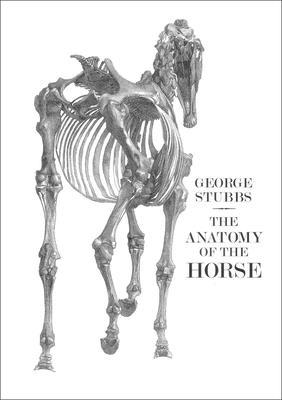- This presentation of George Stubbs' The Anatomy of the Horse is taken from the 1853 printing, the last to use original plates, includes Stubb's full commentary
- Complemented by essays from Constance Anne Parker and Oliver Kase place Stubbs' work in the context of his life and times, and of 18th-century medical science
"The subtle forms and modelled curves and planes in a skeleton were to George Stubbs what a symphony is to a musician." -- Oxford Companion to Art "The most unique thing of its kind ever compiled. This heroic effort, an epic of the eighteenth century, is as great and unselfish a work as anything could be." -- Sir Alfred Munnings George Stubbs was one of the most original artists Britain has produced, and it is easy to forget how much his success was based on rigorous scientific observation. In 1756 he rented a farmhouse where he erected scaffolding to hold the cadavers of horses as he dissected and drew. After 18 months, Stubbs produced the drawings for The Anatomy of the Horse, which he later etched. The result was sensational. Scientists from all over Europe sent their congratulations, amazed at the perfection of the work. The Anatomy remained a textbook for artists and scientists for over a century, and its strange, spare beauty continues to fascinate. This edition is taken from the 1853 printing, the last to use Stubbs' original plates. The full Stubbs' commentary is included for the veterinarially minded. Extensive texts by Constance Anne Parker and Oliver Kase place Stubbs' work in the context of his life and times, and of 18th-century medical science.
